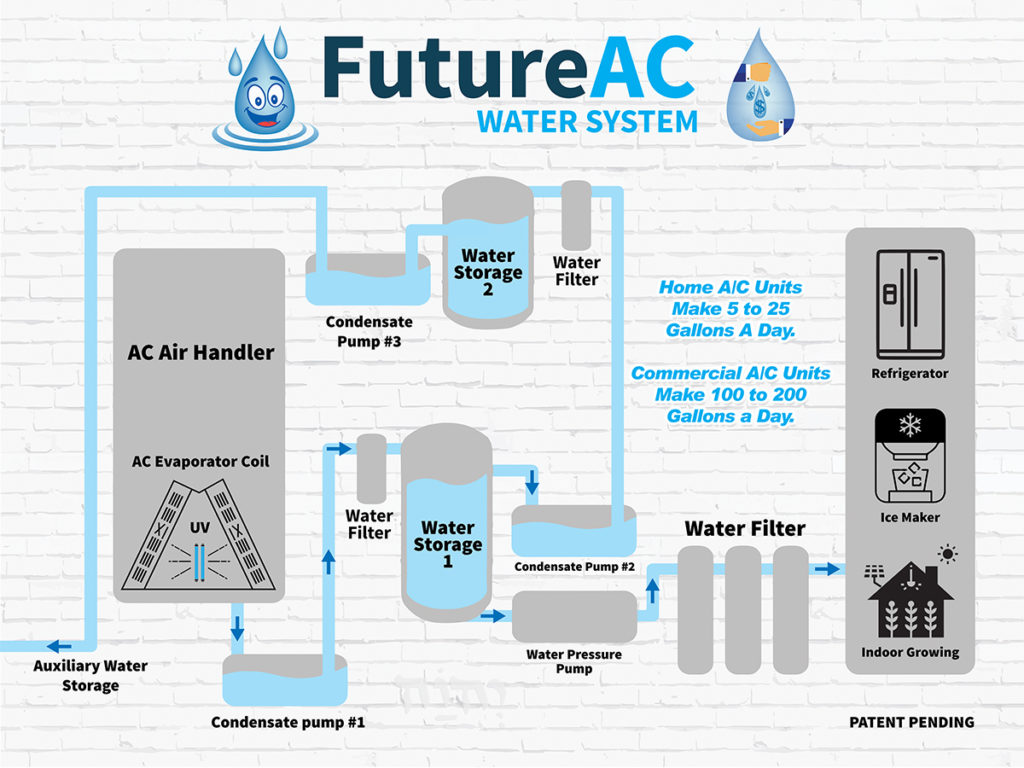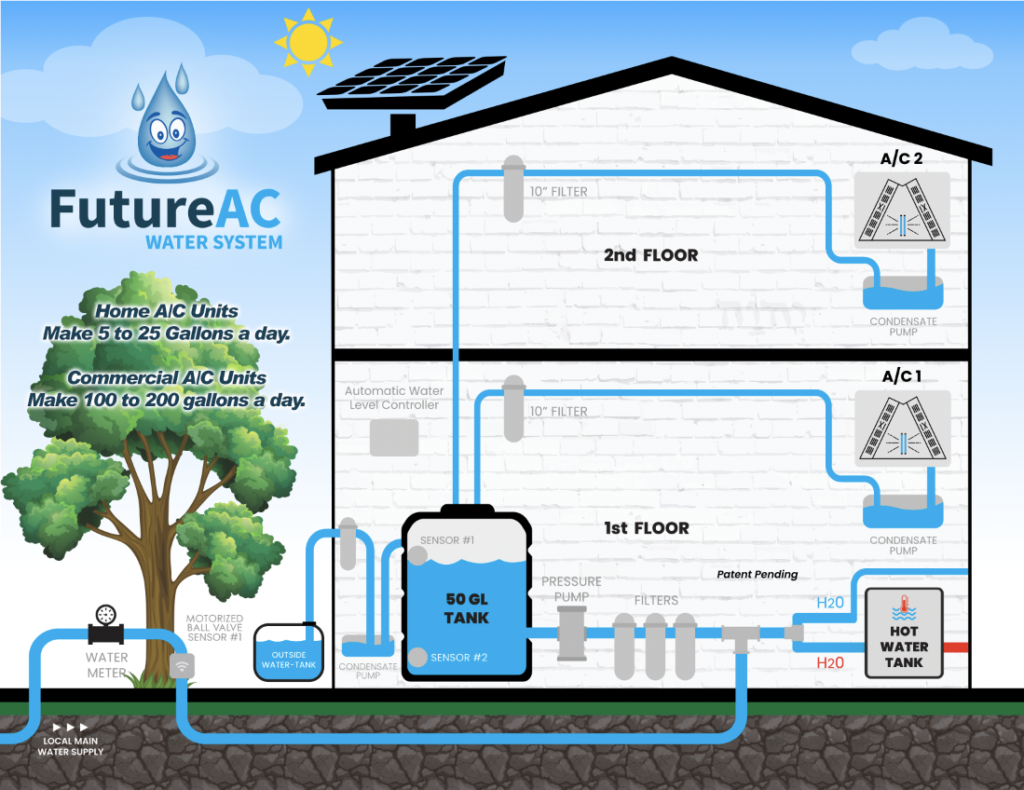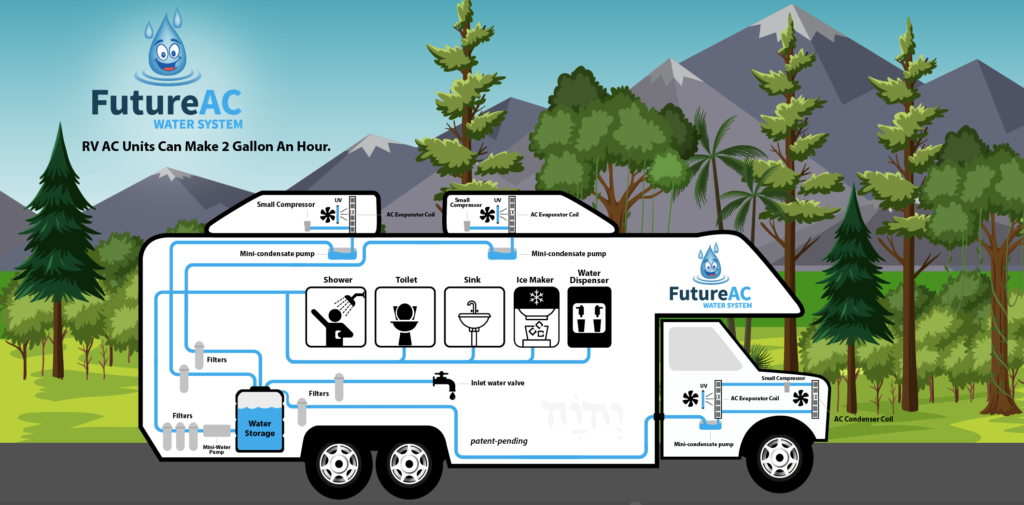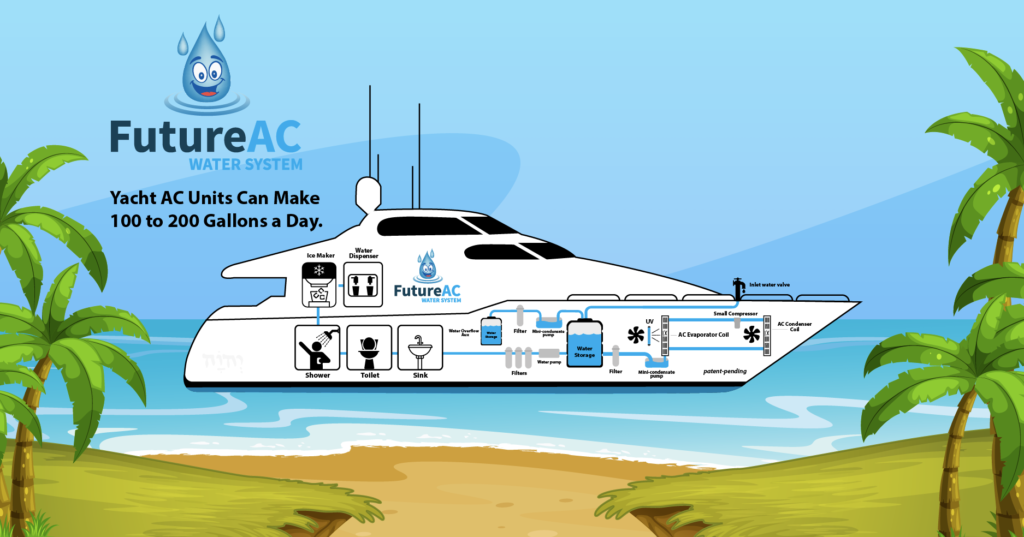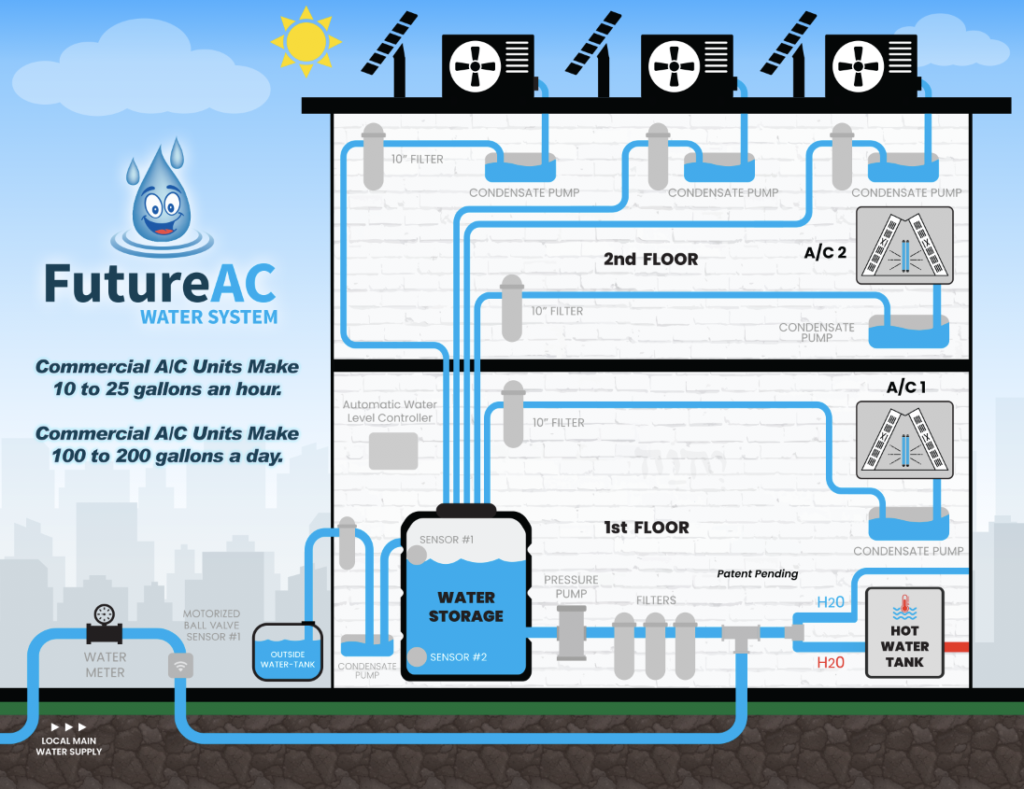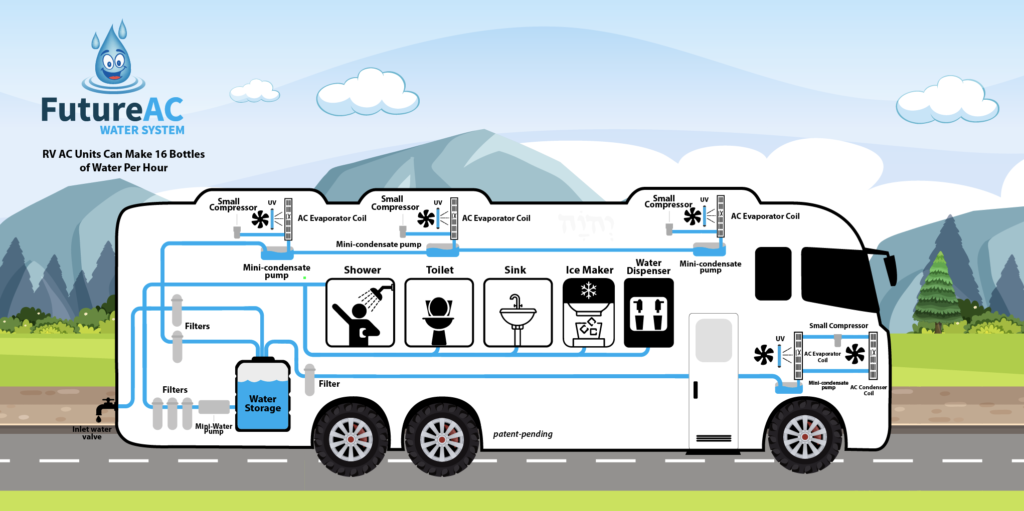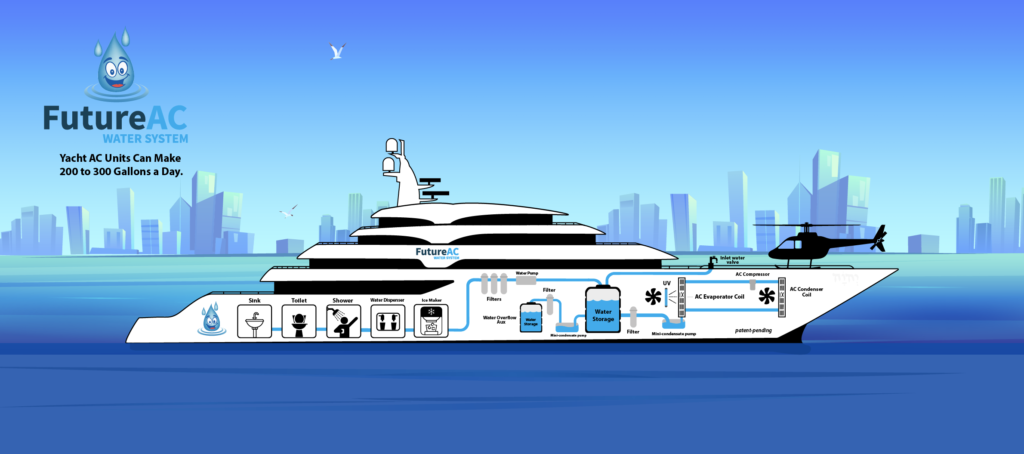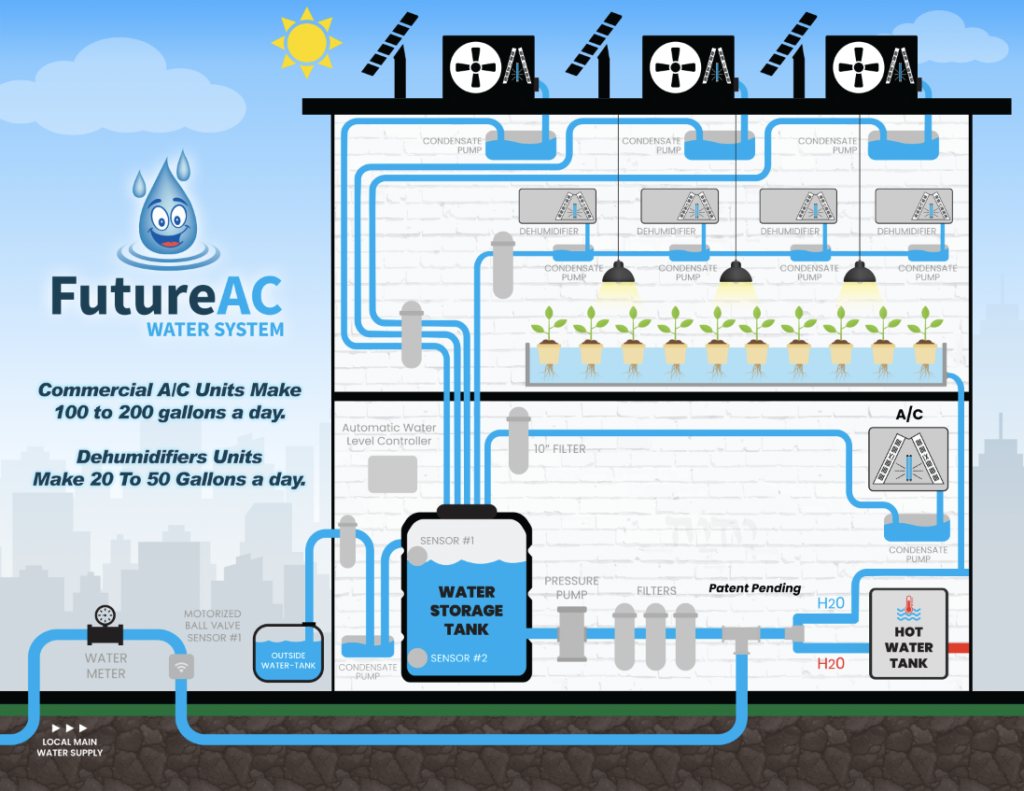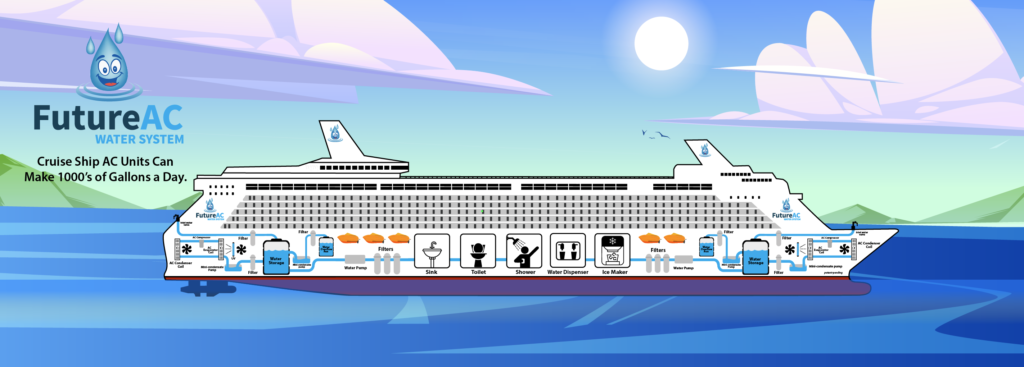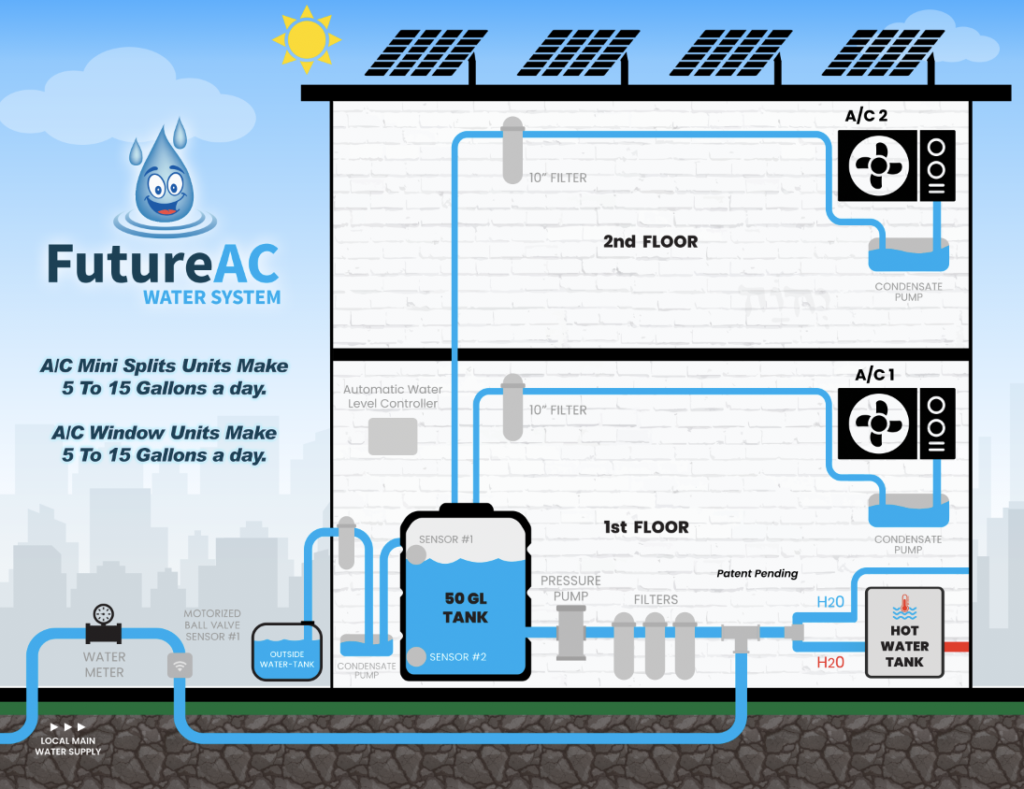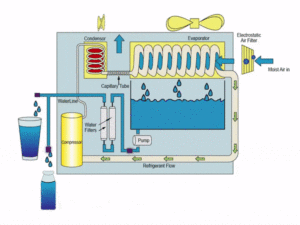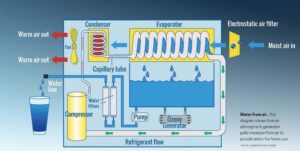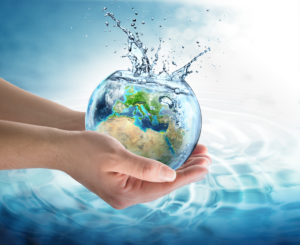Beat the Heat and Save the Planet: Why South Florida Should Recycle their Air Conditioner Water
South Florida is no stranger to the sweltering heat and humidity that is a hallmark of the region. With the rising temperatures, air conditioning units have become a necessity for many households and businesses alike. However, these AC units generate a significant amount of water that is typically wasted, leading to water scarcity issues in the region.
As a water recycling professional, I urge South Florida residents to consider recycling their air conditioner water to combat this issue. Recycling AC water can help reduce water waste and alleviate water scarcity problems. Additionally, it can significantly reduce the environmental impact of air conditioning units, as recycling water decreases the amount of energy needed to treat and distribute water.
Recycling AC water is a simple process that can be achieved through the installation of a collection tank and a filtration system. The collected water can then be used for non-potable purposes such as landscape irrigation, toilet flushing, and cooling towers, among others. This can lead to significant cost savings for businesses and households alike, as recycled water can be used instead of purchasing fresh water for these purposes.
Moreover, recycling AC water can have a positive impact on the environment by reducing the amount of water taken from natural sources, such as rivers and lakes. By conserving water resources, we can help preserve the delicate ecosystem of South Florida and protect it from the effects of climate change.
Overall, recycling air conditioner water is a simple yet effective way to beat the heat and save the planet in South Florida. As a water recycling professional, I urge residents to consider this sustainable solution to combat water scarcity problems and reduce their environmental impact. Let’s work together to create a more sustainable future for South Florida.
Air conditioning systems are an essential component of our daily lives, especially in warm and humid regions such as South Florida.
However, air conditioning systems consume a considerable amount of water, which can have significant environmental and economic impacts. Recycling air conditioning water can offer several benefits to homeowners, including reducing water consumption, lowering utility bills, and minimizing the environmental impact of air conditioning systems. In this article, we will explore the benefits of recycling air conditioning water and why South Florida residents should consider investing in this technology.
What is Air Conditioning Water?
Before we dive into the benefits of recycling air conditioning water, let’s first understand what it is. Air conditioning systems work by removing heat and moisture from indoor air, which results in the formation of condensate water. This water is collected in a pan or tray and then drained out of the building through a pipe. The amount of condensate water produced by an air conditioning system depends on the size and efficiency of the system, as well as the local climate.
Why Recycle Air Conditioning Water?
Recycling air conditioning water can offer several benefits to homeowners and businesses, including:
- Reducing Water Consumption
South Florida is a region that faces water scarcity issues due to its location and climate. Recycling air conditioning water can significantly reduce water consumption in homes and businesses by reusing the water that would otherwise be wasted. This not only helps conserve water resources but also reduces the amount of wastewater that is generated, which can strain local wastewater treatment facilities. - Lowering Utility Bills
Air conditioning systems are one of the largest energy consumers in homes and businesses. Investing in A/C Water Recycling can reduce your power and water utility A/C maintenance and repair.
Regularly changing the air conditioning (AC) filter and keeping the AC coil clean can bring several benefits, The system can efficiently cool the air in the room without consuming excess energy, leading to lower electricity bills.
Regularly replacing the filters to keep the AC coil clean and installing a UV light to reduce mold and bacteria growth are often overlooked by homeowners and commercial building owners. However, neglecting these maintenance tasks can lead to issues such as reduced airflow, frozen coils, and even system failure. In turn, this can result in significant service or repair costs and higher electric bill.A clean AC coil can also help prevent issues such as reduced airflow, frozen coils, and even system failure, which can be costly to repair.
Regularly maintaining the AC coil and filter enables the AC unit to operate optimally, ensuring maximum cooling performance while minimizing energy consumption.
Overall, by investing in regular Ac water recycling homes owners and commercial buildings will now maintain the Ac; by changing the filter regularly and adding a UV light to prevent the growth of mold, bacteria, and other harmful microorganisms that can thrive in the moist environment of an AC coil. This can lead to improved indoor air quality and reduced risk of respiratory issues. And keeping a clean ac coil expands the lifespan of the AC unit. It can result in significant cost savings over time, lowering utility bills while ensuring a comfortable indoor environment. As a bonus, homeowners and building owners can also enjoy the complimentary benefits of filtered AC water and ice. - Minimizing Environmental Impact
Air conditioning systems can have a significant environmental impact, primarily due to their high energy consumption and water use. Recycling air conditioning water can help minimize this impact by reducing the amount of water that needs to be sourced and treated, and the amount of energy required to cool indoor spaces. This, in turn, can help reduce greenhouse gas emissions and lower the overall carbon footprint of homes and businesses. - Promoting Sustainable Practices
Recycling air conditioning water is a sustainable practice that promotes responsible water use and conservation. By investing in this technology, South Florida residents can take an active role in reducing their environmental impact and promoting sustainable practices. This can not only benefit the local community but also contribute to global efforts to mitigate climate change and preserve natural resources.
Home Units Make 5 to 25 Gallons A Day + Commercial Units Make 200 to 400 Gallons A Day
HOME UNITS
5-25 GALLONS
COMMERCIAL UNITS
200-400 GALLONS
FLORIDA (2021) AC Water Wasted
Estimated Population
21,538,187
Amount of Households
8,731,198
Water Wasted Per Day
130,967,970 gallons
Water Wasted Per Week
916,776,790 gal
Water Wasted Per Month
3,963,211,640 gal
Water Wasted Per Year
47,558,539,680 gal
How Does Air Conditioning Water Recycling Work?
Air conditioning water recycling systems work by capturing and treating the condensate water produced by air conditioning systems. The water is then filtered and stored for reuse in various applications, such as irrigation, toilet flushing, and cooling towers. The process of recycling air conditioning water involves the following steps:
Capturing the Water:
The first step in air-conditioning water recycling is to capture the condensate water produced by air conditioning systems. This condensate water is collected in a tray or pan beneath the air conditioning unit. It is then directed to a condensate pump that will pump the condensate water through a 10in 50 plated micron filter to water storage.
Storing the Water:
After pre-filtered, the water is stored in a separate tank or cistern for reuse. The size of the storage tank depends on the volume of water produced by the air conditioning system and the amount of water needed for various applications.
Filtered Water:
Once the water has been captured, it is filtered to remove impurities and contaminants. The treatment process may include filtration, disinfection, and pH adjustment to ensure the water is safe for reuse. Throughout pressure pump, or water pump with presa sized water tank.
Reusing the Water:
The recycled water can be used for various applications, such as filtered daily drinking water, Ice making, irrigation, toilet flushing, and cooling towers. Irrigation is the most common application of recycled air conditioning water.
It is estimated that a typical air conditioning system can produce between 5-20 gallons of condensate water per day; commercial AC units can make 100 to 200 gallons a day which can be used to irrigate a small lawn or garden.
However, it is essential to note that the quality of recycled water may only be suitable for some types of plants, especially those sensitive to high salts and minerals.
Toilet flushing is another application of recycled air conditioning water. This can help reduce water consumption in homes and businesses, especially in areas where water is scarce. A typical toilet flush uses between 1.6-3.5 gallons of water, depending on the model and type. By using recycled water for toilet flushing, homeowners and businesses can significantly reduce their water bills and contribute to water conservation efforts.
Cooling towers are another common application of recycled air conditioning water. Cooling towers are used in large commercial and industrial buildings to remove heat from the building and transfer it to the atmosphere. These systems require large amounts of water to function properly, and using recycled air conditioning water can significantly reduce the amount of water needed to operate them.
Benefits of Air Conditioning Water Recycling for South Florida Residents
South Florida is a region that faces several environmental challenges, including water scarcity, climate change, and sea level rise. Recycling air conditioning water can offer several benefits to residents of South Florida, including:
- Water Conservation
South Florida is a region that faces water scarcity issues due to its location and climate. Recycling air conditioning water can significantly reduce water consumption in homes and businesses by reusing the water that would otherwise be wasted. This not only helps conserve water resources but also reduces the amount of wastewater that is generated, which can strain local wastewater treatment facilities. - Energy Savings
Air conditioning systems are one of the largest energy consumers in homes and businesses. Investing in A/C Water Recycling can reduce your power and water utility A/C maintenance and repair.
Regularly changing the air conditioning (AC) filter and keeping the AC coil clean can bring several benefits; the system can efficiently cool the air in the room without consuming excess energy, leading to lower electricity bills.
Regularly replacing the filters to keep the AC coil clean and installing a UV light to reduce mold and bacteria growth are often overlooked by homeowners and commercial building owners. However, neglecting these maintenance tasks can lead to issues such as reduced airflow, frozen coils, and even system failure. In turn, this can result in significant service or repair costs and higher electric bill.
A clean AC coil can also help prevent issues such as reduced airflow, frozen coils, and even system failure, which can be costly to repair. Regularly maintaining the AC coil and filter enables the AC unit to operate optimally, ensuring maximum cooling performance while minimizing energy consumption.
Overall, by investing in regular Ac water recycling homes owners and commercial buildings will now maintain the Ac; by changing the filter regularly and adding a UV light to prevent the growth of mold, bacteria, and other harmful microorganisms that can thrive in the moist environment of an AC coil. This can lead to improved indoor air quality and reduced risk of respiratory issues. And keeping a clean ac coil expands the lifespan of the AC unit. It can result in significant cost savings over time, lowering utility.
- Environmental Sustainability
Air conditioning systems can have a significant environmental impact, primarily due to their high energy consumption and water use. Recycling air conditioning water can help minimize this impact by reducing the amount of water that needs to be sourced and treated, and the amount of energy required to cool indoor spaces. This, in turn, can help reduce greenhouse gas emissions and lower the overall carbon footprint of homes and businesses. By investing in this technology, South Florida residents can take an active role in reducing their environmental impact and promoting sustainable practices. - Resilience to Climate Change
South Florida is a region that is particularly vulnerable to the impacts of climate change, including sea level rise, flooding, and extreme weather events.
Recycling air conditioning water can offer several benefits to homeowners and businesses in South Florida, including water conservation, energy savings, environmental sustainability, cost savings, and resilience to climate change. By installing air conditioning water recycling systems in their homes and businesses, South Florida residents can take an active role in promoting sustainable practices, conserving water resources, and reducing their environmental impact.
Homeowners and businesses should consult with a qualified professional to determine the appropriate system for their needs and ensure that it is installed and maintained correctly.
Michael Molinar Tweet
It is important to note that air conditioning water recycling systems require proper installation, maintenance, and monitoring to ensure that they operate effectively and safely. Homeowners and businesses should consult with a qualified professional to determine the appropriate system for their needs and ensure that it is installed and maintained according to local regulations and best practices.
Additionally, homeowners and businesses should be aware of the potential risks associated with recycled water, such as the presence of bacteria and other contaminants. It is important to use recycled water only for approved applications and to follow recommended guidelines for safe use.
In conclusion, air conditioning water recycling can be a valuable investment for homeowners and businesses in South Florida, offering numerous benefits for water conservation, energy savings, environmental sustainability, cost savings, and resilience to climate change. By taking advantage of this technology, South Florida residents can not only reduce their environmental impact but also contribute to the broader effort to create a more sustainable and resilient future for all.

